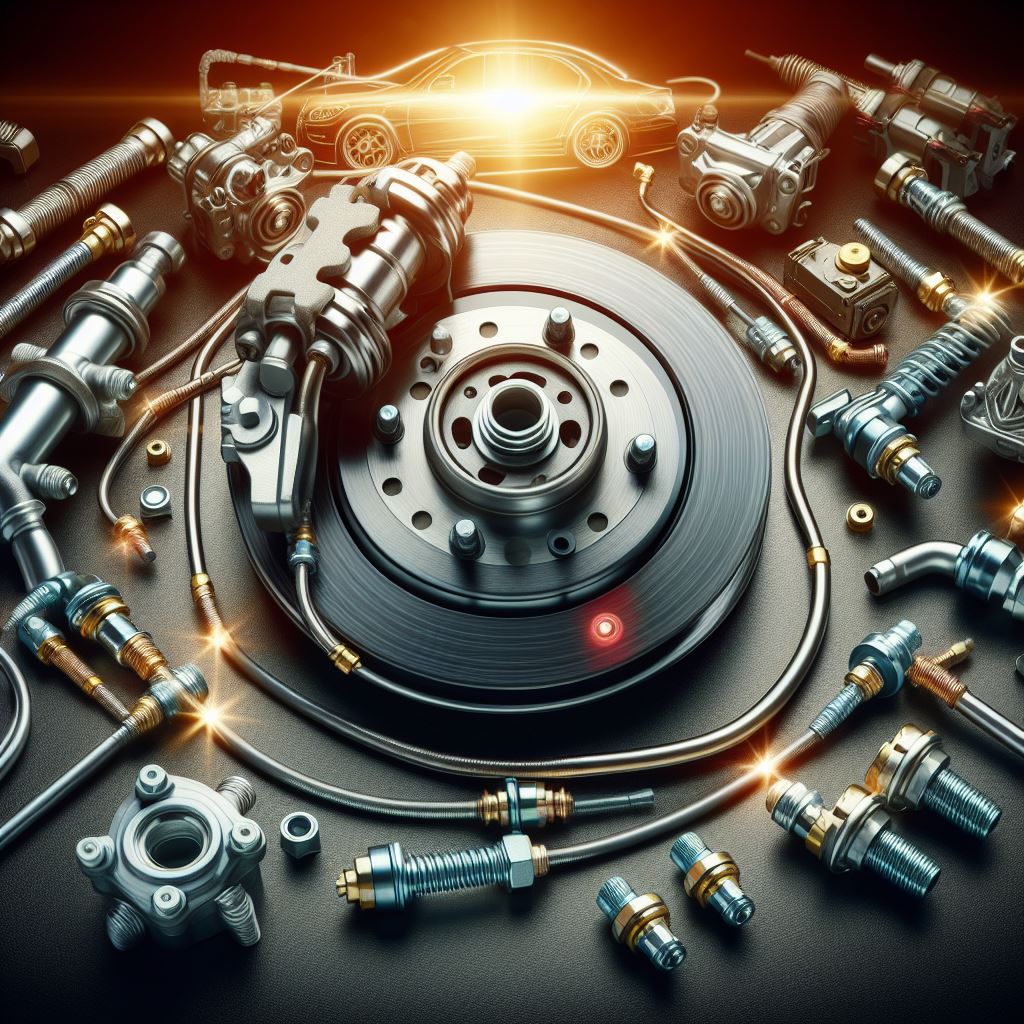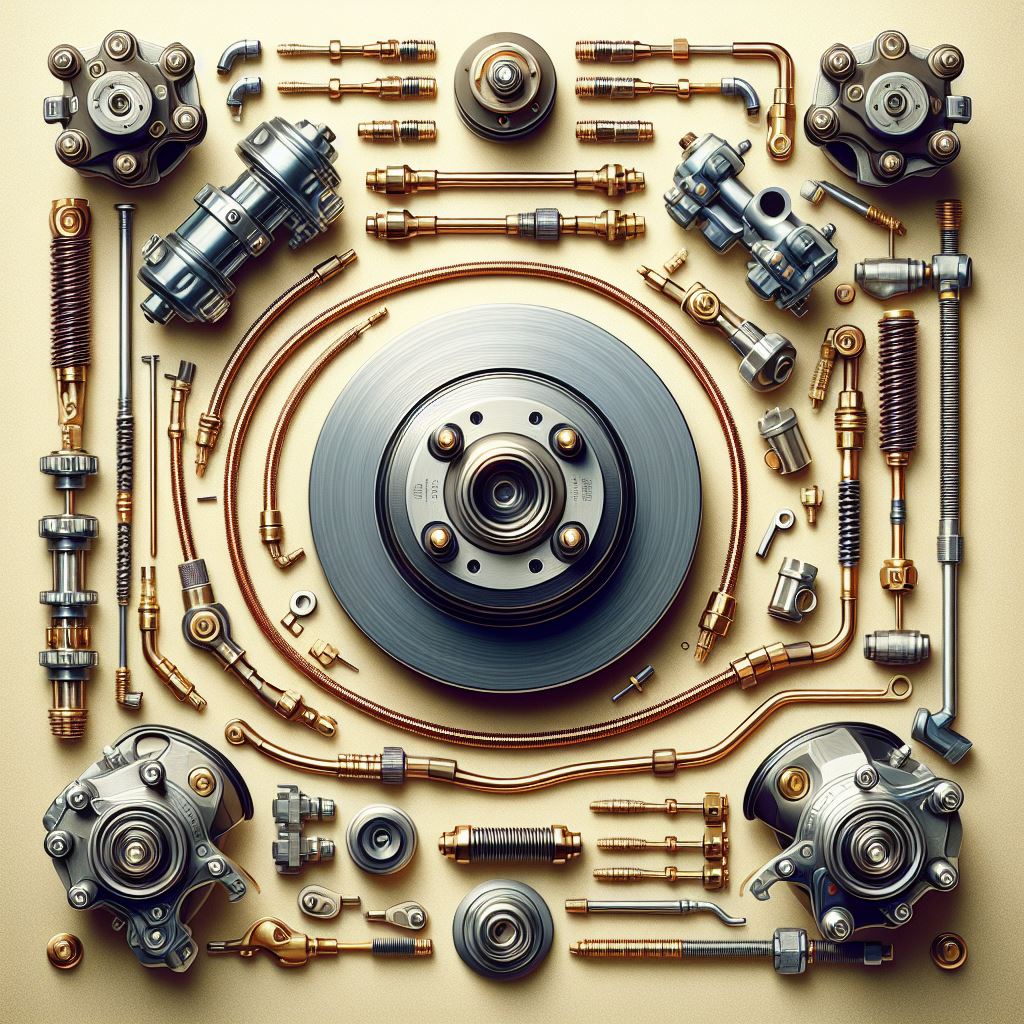What Is The Importance Of Brake Lines In A Car Braking System?
Your vehicle’s brake lines are incredibly important in the overall function of your braking system. Brake lines connect your hydraulic brake fluid system with the calipers on each wheel, allowing you to press down on the brake pedal and stop your car as safely and quickly as possible.
The lines provide an essential link between the two systems, ensuring the right amount of pressure is applied when hitting the brakes.
We understand the importance of regularly inspecting your brake lines for continued safety and performance. Our experienced technicians will thoroughly examine all aspects of your brakes, including visual checks for any signs of damage or wear-and-tear, inspecting all brake hoses for integrity, testing each line’s working pressure, and performing a road test to evaluate overall performance. Read on to learn more in detail about this topic.
Table of Contents
What Are Brake Lines?
Brake lines are an essential component of a car’s braking system. They are the conduits that transfer pressurized brake fluid from the master cylinder to the wheel cylinders and calipers, which activate the brakes. This allows the driver to stop and control the speed of their vehicle safely. A driver cannot safely bring their car to a stop without brake lines.
Brake lines are an important part of a car’s braking system. They provide a conduit for brake fluid to travel from the master cylinder to the brakes, allowing the driver to control their vehicle’s stopping power.
Brake lines also help maintain the hydraulic pressure inside the brakes, allowing them to react quickly and appropriately when pressure is applied. Without properly functioning brake lines, it could be impossible.

Brake lines are an integral part of a car braking system. They carry brake fluid from the master cylinder to the wheel brakes. This brake fluid builds up hydraulic pressure to activate the brakes when the driver presses down on the pedal. Without brake lines, it would be impossible for a car to stop quickly enough in an emergency.
What is the Importance of Brake Lines in A Car Braking System?
Brake lines are an essential part of a car’s braking system. The pipes connect the brake calipers to the master cylinder, allowing brake fluid to travel between them. This lets the driver control the brakes and stop their vehicle safely and effectively.
Without them, there would be no way for the driver to apply pressure on the brakes and slow down or stop their car.
The importance of brake lines is undeniable. To ensure the safety of your vehicle, they must remain in good condition and be regularly checked.

Brake lines help maintain hydraulic pressure inside the brakes, allowing them to react quickly, but they also help transfer pressurized brake fluid from the master cylinder to the calipers and wheel cylinders. This means that when you press down on the brake pedal, your brakes will immediately respond.
Finally, it is important to note that brake lines are also responsible for ensuring that the right amount of pressure is applied when stopping the car. This is especially important in emergencies, where shorter stopping times can mean the difference between safety and danger. Keeping your brake lines in good condition and regularly checking them will ensure you remain safe on the road.
What Happen if I Drive Around with Damaged Brake Line?
Driving around with a damaged brake line can have serious consequences. Without a functioning brake line, the pressure needed to activate the brakes cannot reach the brakes properly, resulting in decreased braking ability.
This can lead to difficulty stopping the car, especially when attempting to stop quickly or in an emergency. The lack of adequate pressure can also cause brake fade, where the brakes become less effective over time.
In addition to decreased braking ability, driving around with a damaged brake line can also lead to further damage to the car. The master cylinder will work harder to compensate for the lack of hydraulic pressure, leading to increased wear and tear.
It is important to keep your brake lines in good condition to bring your vehicle to a stop in any situation safely. If you suspect your brake line is damaged, getting it checked and repaired immediately is important.
How to Identify Damaged Brake Line?
Identifying a damaged brake line in a car’s braking system is important for the safety of the driver, passengers, and other motorists. Damaged brake lines can cause brakes to fail or not work properly, leading to potential accidents.
Fortunately, several signs indicate whether brake lines are compromised. Upon inspecting the vehicle, drivers should look for fluid pooling on the ground below the car, leaking from the brake lines or master cylinder.
If any leaks are present, they should be inspected immediately by a qualified mechanic to determine whether repairs are needed.
In addition, drivers should also pay attention to the performance of their brakes. If the pedal feels spongy or takes longer than usual to stop the car, it could indicate an issue with the brake lines. Additionally, if the brakes make strange noises or feel jerky when activated, it could indicate a problem with the brake lines.
Brake lines are essential to a car’s braking system and should be inspected regularly. By identifying signs of damage early on and getting them repaired, drivers can ensure their vehicles come to a stop safely in any situation.
Can I Repair the Damaged Brake Line Myself?
It is not recommended for individuals to repair damaged brake lines in their cars themselves. Brake lines are essential to a vehicle’s braking system and should be serviced by a qualified mechanic who can properly identify the exact issue.
In some cases, it may be possible to replace a damaged line, but if the underlying cause of the damage has not been identified and addressed, repairs can be ineffective.
In addition, brake lines are often pressurized and require specialized tools to repair or replace them. The correct parts and techniques must be used to ensure safety when working on the system. A qualified mechanic will have the experience and knowledge to ensure the repairs are done properly.
Overall, repairing a damaged brake line should only be attempted by an experienced professional. Trying to repair the line yourself can be dangerous and result in further damage.
Frequently Asked Questions [FAQs]
1. What Is The Purpose Of Brake Lines And Hoses?
The brake lines and hoses in a car’s braking system carry the brake fluid from the master cylinder to the wheel cylinders or calipers. This fluid, when pressurized, pushes the pistons in these components, causing the brakes to engage. The brake lines and hoses provide an effective and efficient means of delivering this pressure to where it needs to go.
2. What Happens If The Brake Lines Are Damaged?
If the brake lines in a car’s braking system become damaged, it can lead to a decrease in pressure and an increase in heat. This can cause brakes to fail or not work properly, leading to potential accidents.
In addition, fluid may leak and pool under the car, which can be dangerous for other drivers on the road. Inspecting brake lines regularly and repairing any damage immediately is essential to ensure the vehicle’s safe operation.
3. What Happens If A Brake Line Fails?
If a brake line fails, it can have serious and hazardous consequences for the driver and others on the road. Brake lines connect the brake system components and deliver pressure from the master cylinder to each wheel’s brakes.
When one of these lines fails, it can cause a decrease in braking power, as some or all of the brakes will not function properly. This can lead to an increased stopping distance and the potential for an accident.
4. Do I Need Brake Lines?
Brake lines are essential to a car’s braking system and should not be overlooked. The brake lines consist of flexible metal tubes that carry hydraulic pressure from the master cylinder to the brakes at each wheel.
As you apply pressure to the brake pedal, fluid is forced through these pipes and into the brakes, which causes them to clamp down on the rotors and slow the car down.
5. Can A Car Drive Without Brake Lines?
No, a car cannot drive without brake lines. The brake lines are an essential part of the braking system in modern vehicles. Without them, the brakes would be unable to function properly, and the car would be unable to stop or slow down as desired.
Conclusion
Brake lines are an essential part of any vehicle’s braking system. They carry pressurized brake fluid from the master cylinder to the brakes at each wheel, allowing proper braking power and performance. If these lines become damaged or fail, it can cause serious safety issues and lead to potential accidents. It is important to inspect brake lines regularly and have any damage repaired immediately by a qualified mechanic.
